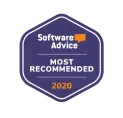Jeff Bezos has a famous quote about branding: “Your brand is what people say about you when you’re not in the room.” It’s a good reminder that branding, whether its consumer branding or employer branding, is primarily about reputation.
In his article in the Harvard Business Review, writer Bryan Adams, who co-wrote the book, “Give & Get Employer Branding.” says that “modern job seekers weigh a prospective employer’s reputation heavily in their decision to apply for a job or accept an offer.”
So does that mean that your employer brand is out of your control as an employer? Not at all. As Bryan points out, you can “start building your reputation in the talent marketplace by investing in initiatives that align with the preferences of your ideal candidates.”
Developing an employer branding strategy
While employer branding at its most basic is defined as your reputation as an employer, SHRM gives us a more detailed definition. Employer branding “is essentially what the organization communicates as its identity to both potential and current employees.” It’s important to include current employees because a company’s employer brand starts inside the organization.
As SHRM points out, “it encompasses an organization’s mission, values, culture, and personality.” Most importantly, “Employer brand affects recruitment of new employees, retention and engagement of current employees, and the overall perception of the organization in the market.”
While you can’t just create an employer brand, you can develop an employment branding strategy. SHRM offers up these points to consider when developing your strategy:
- Know the organization’s business, vision, mission, values, and culture. Understand the organization’s business objectives and what talent is needed to accomplish those objectives.
- Conduct internal research to understand how the organization is perceived by its current employees, as well as by its target candidate group.
- Conduct external research to learn how the organization is positioned in relation to the competition.
- Define an employee value proposition that clearly communicates the value of the brand the organization is developing.
- Develop an employee marketing strategy. The recruitment strategy should focus on reaching the targeted applicant base. The second prong centers on consistently communicating the employee value proposition to current employees to retain and engage them.
- Align the employer brand with the overall company brand. Work with the marketing and communications groups to ensure a holistic branding approach.
- Ensure that the people and management practices support the organization’s employer brand.
- Develop and use metrics to assess and track the success of the employer brand.
Who does employer branding well? Just Google it
If you’re a small or midsize business, you don’t need to compare your employer brand to those of companies like Salesforce, Starbucks, and Netflix. But we can learn from those companies, and see how their culture is conveyed through their branding efforts. If you search for examples of great employer brands, you’ll find those companies and many others, including GE, Cisco, T-Mobile, Zappos, and Microsoft.
Many experts seem to agree that the company that does it better than just about anyone is Google, which invites candidates to “Build for Everyone.” 6Connex, the leading provider of virtual events for enterprises worldwide, refers to Google as “The Rockstar of Employer Branding.” In their blog post on employer branding, they write that “Google employer branding is one of the best in the world. The company is known for its excellent approach to employees, as well as its knack for building a strong employer value proposition.
Improving your reputation as an employer
By improving your reputation as an employer, you’re building a stronger employer brand. While your company’s reputation isn’t completely under your control, there are some steps you can take to improve your reputation online. Glassdoor offers up some tips, and since Glassdoor is an online review site, their first tip shouldn’t be a surprise:
- Take online review sites very seriously.
While Glassdoor is “the leading destination for employer research by informed candidates,” they point out that “sites like Indeed have places where employees can post reviews too.” It’s important to monitor your online reputation and have a strategy for responding to them. Glassdoor’s research tells us that “responding to every review on their sites results in an average of a 5 percent lift in employer rating.”
- Analyze and improve your employer “top fold”
When a candidate performs a Google search with the name of your company and the word “employer,” the first five to six things that come up are what is known as the “top fold,” which is what they’ll spend the most time looking at. It’s a good idea to make sure their search gives them “lots of places to go and learn about you as an employer.” This can help them form a positive impression.
- Build a strategy to showcase your employer brand
Glassdoor’s studies at Work It Daily show us that the best employer brands answer the following five questions:
- Who’s driving the bus? (Leadership)
- Who will I spend 8+ hours/day with? (Co-workers)
- How do they bond as a team? (Fun Factor)
- What will make me proud to work there? (WOW Factor)
- What do they stand for? (Values & Beliefs)
According to Glassdoor, “when your company creates and distributes content online that showcases those five elements of your employer brand, you will find it much easier to convince top talent to work for you.
What a strong employer brand can do for your business
Your employer brand can strengthen every tactic you are using to hire A-players. From recruitment marketing to communications with your existing employees, your employer brand is there to help you achieve your talent acquisition and retention goals:
1. Recruit A-players
Your employer brand, including a well-defined employer values proposition, helps you showcase your culture and explain what A-players can expect from an opportunity in your company.
2. Engage A-players
A strong employer brand enables you to achieve consistency across all employee communications. If you have multiple internal programs, your employer brand helps to bring them all together.
3. Retain A-players
Employer branding enhances employee retention by helping to recruit candidates who are better fits for your company. Your brand helps foster a consistent experience throughout the entire employee lifecycle.
Your employer brand on social media
EveryoneSocial offers up some helpful suggestions on things you can be doing on your social media channels to strengthen your employer brand.
- Use your organization’s branding (color tones, voice, values) across any content on social media. Keep it consistent to align with your website and mission as a company.
- Show off your corporate offices and storefronts. If you have multiple locations, show the diversity online.
- Highlight individual team players, what they do, why their job is important, and how they are impacting the company.
- Does your company hold team-building events? Talk about them on social media. Show images and videos from these events.
- Get executives talking in videos, connecting with individual employees, providing quotes, etc. They should be at the forefront of social media and employer branding efforts.
- Develop unique employer brand campaigns for something specific.
- Consider letting employees share and create content about your brand for social media,
Here’s an easy, 5-step employer branding strategy
There are companies that specialize in developing employer branding strategies for companies. But the purest approach to creating your strategy is doing it yourself. Because an authentic and productive employer branding strategy is one that comes from inside your company. I’ve broken it down into 5 steps so you can see that while developing a strategy requires some work, the process to get there is really pretty simple:
1. Set your goals
What do you want to achieve? A bigger talent pool? Do you want to reduce your cost and time to hire A-players? Decide what success will look like and build from there.
2. Identify your ideal candidates
Who are you trying to attract? This is an important step, whether you’re developing an employer branding strategy or just writing a job description or advertisement. If you put some thought into this step, EVERYTHING else will be much easier for you.
3. Define your Employer Value Proposition (EVP)
Your employer value proposition is the give and get. What can your candidates expect to receive in return for the value they bring to your company? Keep in mind that this is a promise and your A-players will hold you to it.
4. Choose your channels and candidate touchpoints.
Where will you market your employer brand? Consider all the different channels you can use to discover talent, and all the places your current and prospective employees will interact with your employer brand.
5. Measure your success
Based on the goals you set in step one, measure the results you’ve achieved. Have you built a bigger talent pool? Are you reducing your cost per hire? The more you measure, the more you can make adjustments that will enable you to achieve success. And ultimately, the reasons you will have to celebrate.
Why is branding so important? Because recruiting is marketing.
By applying marketing principles to your recruiting process, you will be way ahead of the game when it comes to attracting, hiring, and retaining A-players. Your top candidates aren’t going to find out about your opportunities until you market to them.
Employer branding has always been a big deal when it comes to finding the right people, or as I like to call it, getting the right people on the bus. In today’s competitive talent marketplace, it’s hugely important to think more like a marketer and less like an HR generalist.
In the Undercover Recruiter, Sophie Deering writes that “it’s time to think more like a marketer in order to attract the best candidates to your organization. In order to stand out from competitors and engage your target market, you’re going to have to treat candidates more like consumers who you are selling your product (a job at your company) to.”
That’s what I’ve been telling my clients. Recruiting is marketing. A job description needs to be a job advertisement. You need to do more than describe your jobs, describe your culture and describe your reputation as an employer. You need to sell them, advertise them, and tell the world about them.
Build your employer brand, and A-players will come knocking on your door.












